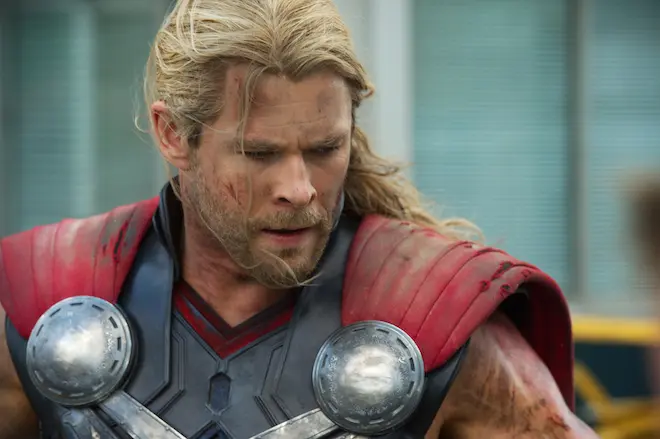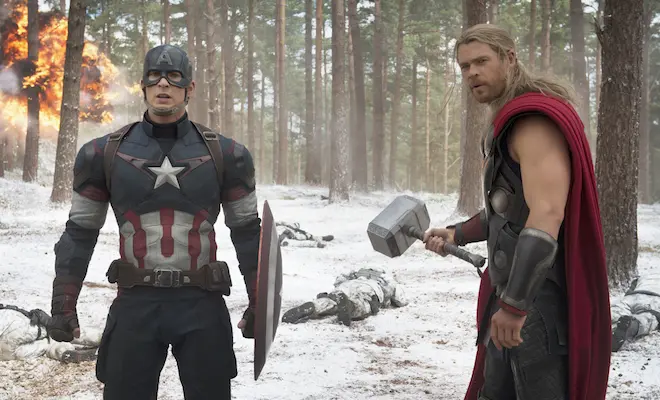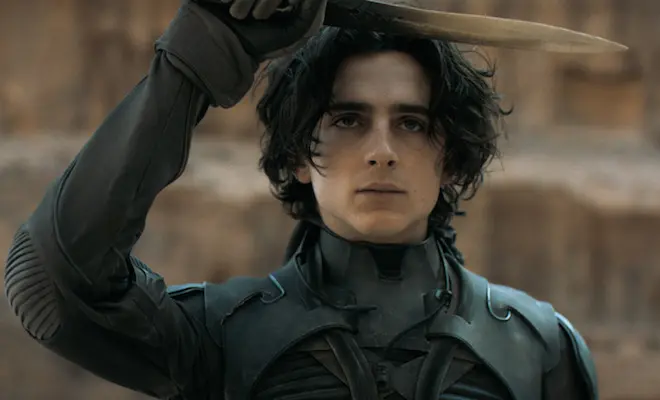What is the cost of our security? What is the price for peace in our time? These are questions that Marvel Studios is asking in the follow up to the wildly-successful superhero team-up film, The Avengers. Even in a world with men in iron suits, and gods, and soldiers-from-another-era, and spies, and monsters, and archers, and so many more, how much are we willing to pay to ensure the survival of our race on our tiny little blue and green rock?
There may be spoilers ahead, so I just want to warn you now.
Still with me? Good.
Avengers: Age of Ultron picks up a few years after the Battle of New York, and the team has really gelled into a cohesive unit. S.H.I.E.L.D. is still down and out, after the events of last summer’s Captain America: The Winter Soldier, and the Avengers are working to root out the remains of HYDRA, now led by Baron Von Strucker (Thomas Kretschman), last seen in the Winter Soldier stinger (because, yes, you have to mention the post-credit scenes as they work as bridges between the different franchises). Strucker has a secret — Loki’s scepter — and a set of twins, Wanda and Pietro Maximoff (Elizabeth Olsen and Aaron Taylor-Johnson) that are “enhanced” with powers. One is fast, the other can control reality. When the Avengers save the day and capture Strucker, the twins escape, angry and alone and seeking revenge on Tony Stark (Robert Downey, Jr.) for his past war-mongering, and now on the Avengers for stopping HYDRA and ruining their home.

Quicksilver/Pietro Maximoff (Aaron Taylor-Johnson) and Scarlet Witch/Wanda Maximoff (Elizabeth Olsen)
Stark and Bruce Banner (Mark Ruffalo), now in control of Loki’s scepter before Thor (Chris Hemsworth) returns it to Asgard, discover that the power of the scepter is the key to finishing one of Stark’s Artificial Intelligence projects, called Ultron. Though Banner disagrees, Stark uses the scepter and Ultron (James Spader) becomes the single most intelligent A.I. ever created, and as things tend to go, his sentience is bad for humanity. Ultron quickly begins to create and replicate himself using old Stark tech and the Avengers find themselves severely outmanned and under the gun from the one of the smartest — and deadliest — adversaries ever.
Avengers: Age of Ultron once again relies on writer/director Joss Whedon to make it all work. Whedon is tasked with not only keeping the team together and interesting, but with so many new moving parts, and a story that stretches farther than 2012’s The Avengers, all the while keeping doors open for future tie-ins and moving the main story forward, it seems that maybe, just maybe, Whedon has bitten off more than even he can chew.
The team dynamics are explored — for good or bad — as Natasha (Scarlett Johansson) and Banner are now moving toward coupling, and Hawkeye (Jeremy Renner) is starting to wonder if he really belongs in a team with gods and monsters, and even Cap (Chris Evans), the de facto leader of the Avengers, has issue with Stark and his reasons for creating the Ultron A.I. in the first place (which of course, will lead to bad things in the next Cap movie, Captain America: Civil War). This dysfunction comes at a time when they need to be a team the most (and Whedon hits us over the head with that notion again and again) and if they are to finally defeat Ultron, they must work together.
In the second act, after an incredible fight scene between The Hulk and a hyper-powered Iron Man on the streets of an African city, the story comes to a halt as the team limps to a “safe house” which happens to be Hawkeye’s farmhouse, where he lives with his wife (Linda Cardellini) and kids when he’s not out shooting bad guys with unlimited arrows from bottomless quivers. This is Renner’s time for a back story, after essentially being ignored in the first film. This major break in the action is jarring, but does serve to highlight exactly what the Avengers fight for — here, family, humanity, a way of life — all of which are things that Ultron seeks to destroy.
The most interesting parts of Age of Ultron comes when Wanda bewitches members of the team and each sees their greatest fear — and possibly the future. This revelation causes Thor to seek out answers, and gives motivation for Stark’s reasons for creating Ultron in the first place. It is here that the audience truly learns of Natasha’s past, finally rounding out her story after her now fourth appearance in a Marvel movie. Questions remain if what Tony sees in his dream is the future (and it’s not good for Earth’s Mightiest Heroes if it is) and what exactly Thor saw (Ragnarok, which is the end of the Norse world perhaps — and is also the subtitle of his third solo movie), and these questions hang over the balance of Age of Ultron.
The third act ramps the action back up, with Ultron’s endgame being something that is so out of a comic book, that it made me chuckle (in a good way). This isn’t just generic aliens pouring through a hole over New York. This is an extinction-level event and the stakes are very real. A new Avenger is born — literally — in Vision (Paul Bettany) and the Avengers come together to take the fight to Ultron. As the team fights what looks to be a losing battle, and even with old friends showing up to help, Ultron’s plan is eventually thwarted, but not without paying a dire cost.

Thor (Chris Hemsworth), Iron Man/Tony Stark (Robert Downey Jr.) and Captain America/Steve Rogers (Chris Evans)
While Avengers: Age of Ultron is a great comic book movie, it doesn’t quite reach the level of the first film, or even last summer’s Guardian of the Galaxy, and is no where close to The Winter Soldier. Age of Ultron is a bridge movie, which acts like a “boss battle” or a “final exam” for all of the phase two films, all the while setting the stage for phase three. The wonder and thrill of seeing a team of super heroes come together in the darkest hour to save the world is gone, and the realities of the constant war for peace and security — touched upon so deftly in Captain America: The Winter Soldier — have replaced it.

Hulk (Mark Ruffalo), Captain America (Chris Evans), Iron Man (Robert Downey Jr.), Hawkeye (Jeremy Renner), Black Widow (Scarlett Johansson), and Thor (Chris Hemsworth)
The world (and universe) is moving to a very bad place and Thanos is ever closer to achieving his own end game, which for those in the know, is terrifying. And not even the Avengers — new and old — will be able to stop it alone. And therein lies the true beauty of what Marvel Studios has created here. This isn’t just a movie, or even a series, this film, and all that came before it, are part of a much bigger tapestry, and even if the film falters in parts, as long as the grander story moves forward and the bigger picture becomes clearer, then it’s a win for Marvel. And trust me, Avengers: Age of Ultron is a win. It may not be the best of the Marvel Studios films, but it does prove that we are living in a true Marvel Age of Movies. And the best is yet to come.
Avengers: Age of Ultron is rated PG-13. It hits theaters nationally on May 1, and is in theaters now internationally.







